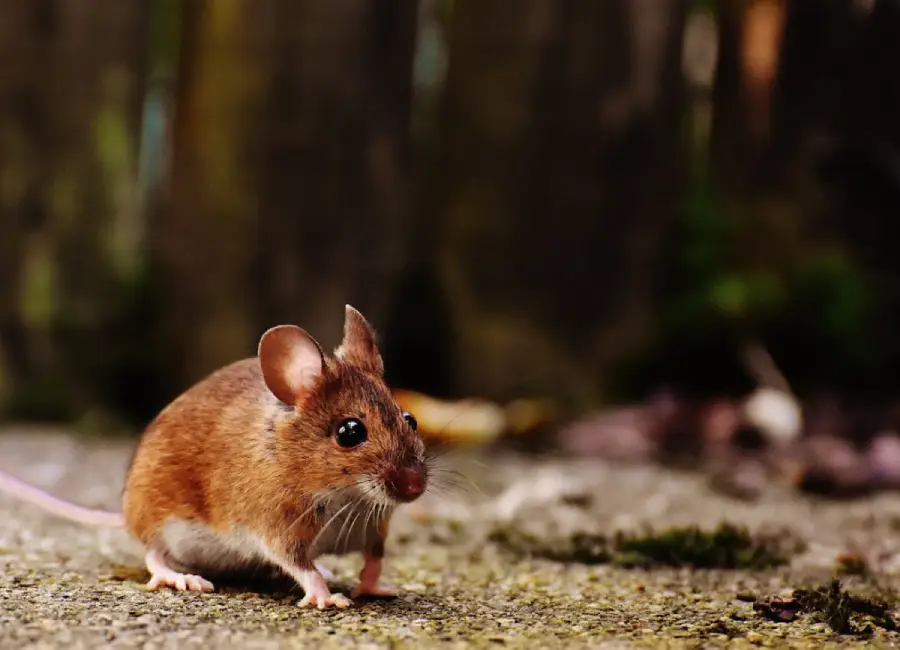The smell of mouse urine can be persistent and unpleasant, especially if it has soaked into porous materials or lingered in enclosed spaces. This odor is caused by the ammonia in their urine and can serve as a marker for other mice, encouraging infestations if not dealt with properly. Here’s a step-by-step guide to eliminate the smell and prevent it from returning.
Identify the Source of the Smell
Before you begin cleaning, locate the areas where the smell is strongest. Check common hiding spots for mice, such as behind furniture, inside cabinets, attics, basements, or along baseboards. Use a flashlight to look for urine stains or droppings, as these will guide you to the problem areas. In some cases, a black light can make urine stains more visible.
Clean Up Mouse Droppings Safely
When dealing with mouse droppings and urine, safety is a priority because these can carry harmful bacteria and viruses such as Hantavirus. Wear gloves and a mask to avoid direct contact or inhalation of dust particles. Avoid vacuuming or sweeping droppings, as this can stir up harmful particles.
Instead, spray the affected area with a disinfectant or a mixture of bleach and water (1 part bleach to 10 parts water). Let it sit for about 10 minutes to disinfect the area fully, then carefully wipe up the droppings with paper towels. Dispose of them in a sealed plastic bag and throw them away in an outdoor trash bin.
Remove the Urine Stains
If the urine has soaked into surfaces like floors, walls, or furniture, clean it thoroughly with an enzymatic cleaner designed for pet urine. These cleaners break down the proteins and ammonia in the urine that cause the smell. Follow these steps for various surfaces:
- Hard surfaces (tiles, hardwood, linoleum): Wipe the area with a disinfectant or enzymatic cleaner and a damp cloth. For stubborn stains, let the cleaner sit for several minutes before scrubbing gently.
- Porous surfaces (carpets, upholstery): Soak the area with an enzymatic cleaner and let it penetrate for 10–15 minutes. Blot with a clean cloth or paper towel to remove excess moisture, then allow it to air dry.
- Walls or baseboards: Use a mild detergent or enzymatic cleaner on a soft sponge or cloth. Avoid soaking the surface, especially for painted walls, to prevent damage.
Neutralize the Odor
After cleaning the area, further deodorize it to ensure no lingering smells remain. Here are some effective methods:
- Baking Soda: Sprinkle baking soda over carpets, furniture, or hard surfaces and let it sit for several hours or overnight. Vacuum or wipe it off afterward.
- Vinegar: Mix equal parts white vinegar and water in a spray bottle and apply it to the affected area. Vinegar is excellent at neutralizing odors, though the vinegar smell may linger temporarily.
- Charcoal or Odor Absorbers: Place activated charcoal, odor-absorbing gels, or coffee grounds near the affected area to absorb remaining odors over a few days.
Improve Ventilation
Proper ventilation is essential for dissipating any lingering odors. Open windows and use fans to circulate fresh air. If the smell persists in a closed space like an attic or basement, consider using an air purifier with a HEPA filter or an ozone generator designed for odor removal.
Address Infestation Issues
If you detect mouse urine, there’s likely an active infestation. Addressing the source of the problem is crucial to prevent future smells. Seal entry points in your home, such as small gaps in walls, floors, or windows. Store food securely in airtight containers and keep your living areas clean and free of crumbs or clutter that attract mice.
Set traps or use humane removal methods to eliminate the mice. If the infestation is severe, it may be best to contact a professional pest control service.
Prevent Future Odors
To avoid a recurrence of mouse urine smells, implement preventative measures:
- Use rodent repellents, such as peppermint oil or ultrasonic devices, to deter mice.
- Regularly inspect your home for signs of mice and act promptly if you find any evidence.
- Clean areas prone to infestations frequently and keep them dry, as mice are attracted to moist, dark spaces.
Conclusion
Removing the smell of mouse urine requires thorough cleaning, effective odor neutralization, and addressing the underlying rodent problem. With the right techniques and preventative measures, you can eliminate the odor and reduce the risk of future infestations. Acting quickly and maintaining a clean environment will ensure your home remains odor-free and mouse-free.

